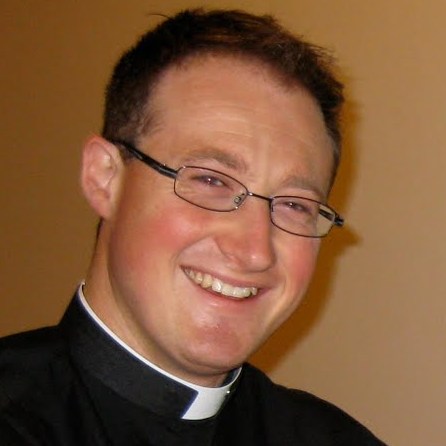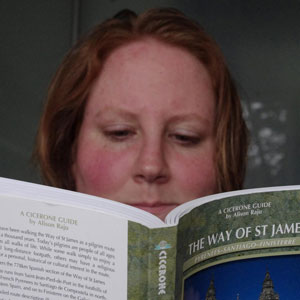I attended an excellent seminar today on school governance and the principle of subsidiarity.
Put very simply, subsidiarity is the grassroots antithesis of centralisation. Wherever possible, higher authorities and larger collectives should not take over the tasks of smaller authorities and collectives, but rather help them (Latin: subsidio).
So, by way of example, it’s not the government’s business to to bring up children, but the family’s. The state should never use its power to replace parents, but instead use its power to assist parents.
The presenter at today’s conference, Dr Alessandro Colombo, is an expert in the theory and application of subsidiarity, particularly in the European Union. He suggested, quite convincingly, that the Catholic education system in Victoria is a remarkable model which exemplifies subsidiarity and deserves world attention.
There are many practices which contribute to this. Public education funds are distributed and managed not by the state, but by the Church. Another significant practice, which distinguishes Victorian Catholic schools not only from state schools, but also Catholic schools in other states, is the system of governance.
In the first place, Catholic principals are invested with a lot of authority, delegated to them by the canonical administrator. In contrast, the governance of public schools is highly centralised in the Education Department, and principals have little governing authority.
In the second place, parish schools in Victoria are governed by the parish priest or similar canonical administrator, who is typically close to the ground. But the administration of parish schools in New South Wales — and I don’t know how many other states — is conducted by the diocesan education office.
The NSW system is canonically irregular, but it does free priests from administrative duties, allowing them to spend more time on pastoral ministry. As a seminarian, I was all for it. Priests are called to be ministers and pastors, not business managers!
But now I’m not so sure. Firstly, the priestly office is three-fold: teaching, sanctifying and governing. I was too hasty in reducing administration to a distraction from priestly ministry. Secondly, the centralisation of school governance flies in the face of subsidiarity. In the scheme of Catholic social teaching, diocesan offices should help parishes to govern their schools, not take over the task themselves.
The key to effective priestly ministry, I have concluded, does not subsist in the surrender of administrative duties, but in efficient and intelligent collaboration with parishioners.
And, with impeccable timing, the Holy Father reminded me just this afternoon that my first duty is to foster union with God by prayer, meditation on the Scriptures, daily Mass and frequent confession:






Father John, allow me to make a cautionary comment: subsidiarity is a concept that can be pragmatically applied or merely just used as a war-cry for an ideology (not that there’s anything wrong with ideology of course – many of us have one). I believe that it assumes the status of a slogan in the hands of some conservative Catholics. It is no more than an assertion to say that religious education, for example, is or should be the primary reserve of parents. In fact, empirically, most parents leave it to the “school” or the “church” or osmosis and to my reading, this was true in previous eras as well. This is not to say that parents should not educate their children according to their conscience or that our experience of parental nurturing instinct does not incline us to want to do so in the normal course of events. But often the cry that education is a family affair is a code for resistance against various and any forms of socialised programmes, and I counter-assert that subsidiarity is a reasonable principle but often proclaimed in a culture war.
When it comes to the idea of priests governing in the diocesan context: curiously, only a few days ago I imagined what I would do, as a new priest in a parish, were I to be confronted by an aggressive local committee. My instinct was to imagine that I would say that what happened outside the scope of the church prayer life was of no interest until I realised that this might be to no avail if the committee chose to unilaterally demolish half the interior of the church or do any manner of things that would impact on such prayer life. Money, I realised, would be at the root of all things, sooner or later! In circumstances like these, however, the higher level, the diocesan or episcopal oversight or veto may well ensure the avoidance of local conflicts or outrages.
The important thing to realise, of course, is that subsidiarity is a principle not a form, and that in different contexts, may result in widely different models or outcomes. The other caution is, of course, to realise that it is not a synonym for privatisation.
Now few days ago would have been 34 years since Archbishop Oscar Romero got shot saying Mass in San Salvador. That happen in March 24 th 1980!
Now there is horse from Australia running in Dubai tomorrow night called Long John it won the Caufield Gunieas last year and did run the Cox Plate! I don’t know what time is the race but it worth having a bet on it!
My tips for tomorrow in Australia are Race 6 No10 at Moonee Valley and Race 8no11 Each Way.
In Adelaide get on Race 7no7 and Race 8no2.
In Sydney where there big carnival has started and it been raining up there all week! At Rosehill tomorrow get on Race4 No5 Race6No10 Race 7No2 Race8no10 and Race9No7. All good each way bets!
Coming up there festival of golf at the Warrnambool Golf Club nine days of golf. Marc Lieshmann is getting ready for the US Masters in two weeks time.
Finally Nick Maxwell plays his 200th game for Collingwood tomorrow night. Keep Well from Simon the Pieman.